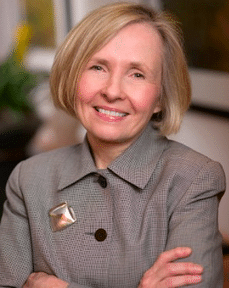Our goal for the Society for Participatory Medicine in 2023 was to expand awareness of participatory medicine ([PM)] and SPM post-Covid and build new insights into the value of PM.
- We developed two curriculum modules, one on participatory medicine and the other on health equity for Health Union, who became a gold member in 2023. The curriculum is now being used as part of the certification course Health Union has developed for patient leaders of its online, condition-specific communities. Under our agreement with Health Union, we can utilize that curriculum ourselves—as can other organizations with acknowledgement of SPM’s authorship—to advance the mission of SPM. We are looking at how best to use these materials in 2024.
- The board set a goal for us to deliver four Creative Learning Exchanges [CLE], half-day interactive events, where themes relating to PM could be explored among patients, caregivers, clinicians, and other health care professionals. This goal was intended to break out of the impact of Covid and reinitiate conversations around how PM was evolving.
We focused on the topics of health equity and the impact of technology, topics which are intertwined with PM and changing the culture of healthcare relationships. SPM delivered three CLEs, one in Portland OR with Oregon Health and Science University and two in Boston MA, one in collaboration with the Patient Experience Symposium and the other in partnership with Northeastern University. We also held a shorter session we put on at the request of a sponsor.
With each event, our audiences grew, and we strengthened our ability to stage them.
In interactive CLE sessions, we collected perceptions of participants about the unique role PM can play in advancing health equity and the effective use of technology. We are using these insights to develop blog posts and other educational materials, to advance the understanding of participatory medicine.
- We took on many other activities, including speaking engagements by our Chief Advocacy Officer, Dr. Danny Sands, commented to the National Coordinator for Health Information Technology on rules related to algorithm transparency and information sharing, and started the development of a library of peer reviewed research that supports the value of PM (contact Danny Sands if you would like to access this library or contribute to it).
- As a 501c3 organization, we are dependent on fundraising to expand our impact and deliver value. While developing these CLEs, we secured sponsorships from multiple organizations, including NRC Health, Evidation, Massachusetts Blue Cross Blue Shield, Phreesia Life Sciences, ZS, BEME, Oregon Health and Science University, and the Boston Public Health Commission. We are grateful for the support of these organizations and their belief in the importance of PM.
What’s ahead for 2024
Coming out of our 2023 CLEs, we believe it is important to update the definition of PM, based in part on our exploration of issues of health equity and technology. It’s been almost 15 years since PM was defined and in the passing years, the health care system has changed. Of late, we hear that PM is being confused with ideas like patient-centeredness and improved patient experience. These concepts are important but don’t speak to the deep, equal, partnership we feel should exist between clinician and patient and how best to facilitate and sustain it. It’s time to consider what has changed and how SPM should best advance the principles of PM. Toward that end, in the first part of the year, we’ll be connecting with key stakeholders to get their perspectives on PM, which will help inform how we describe PM clearly and our mission. We will be updating communications and engaging in research as well, to demonstrate PM’s value to patients and clinicians, as well as to health systems.
This is an exciting period of exploration and opportunity for SPM, which will create a strong foundation for us to move forward rapidly to advance PM in a time where I believe it has never been more needed.
We look forward to providing more insights as we move forward with this work, and we hope we can Involve interested members, as well. If contributing to this work interests you, don’t hesitate to reach out.
Mary Hennings is board chair for SPM. Her professional background is as a senior healthcare executive with 35+ years of broad health care experience. She has expertise in formulating product strategy and new products, and developing and implementing organizational innovations that are aimed at supporting better care, coverage, and customer experiences. She has held leadership roles in both integrated health care delivery and health insurance settings.







I am struck more and more often with how radically the practice of medicine has changed in the last 20-30 years, and not for the better. I hear those kinds of comments everywhere—from the people who are practicing medicine! Not just from patients who are unhappy, but from physicians and nurses who are not happy in their jobs because the nature of those jobs has deviated so remarkably from what it was when they first went into it.
When I read these comments from Mary, above, I am reminded again that it sounds like what the SPM is trying to achieve is a return to old-fashioned medicine. Medicine that is both old-fashioned and yet appropriately technologically sophisticated. Medicine as relationship in the digital age.
Well said, Brenda!
Couldn’t agree more, Brenda.